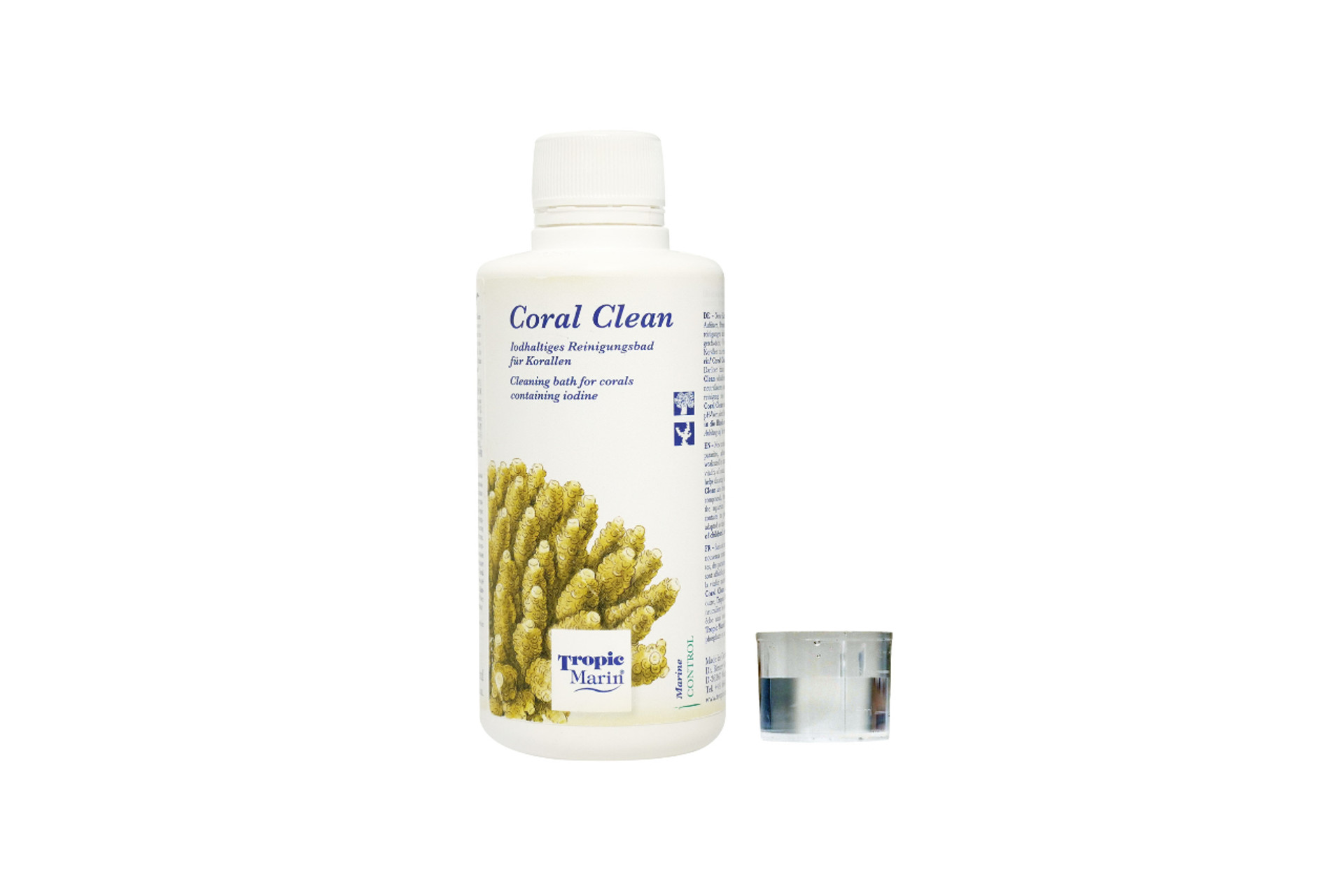Clean Your Corals

You've googled whether or not to dip your corals before adding them to your aquarium, or when they have issues, and you've gotten both answers (yes and no) from a huge variety of sources. We're sorry about that. The reason you see both answers is because both ways work for different people in different situations; there's lots of ways to successfully manage a reef type aquarium and as a result, you'll get lots of answers when it comes to “what should I do” type questions. We wouldn't call it controversial, but you'll get some pretty strongly worded opinions on this topic.
If you've come here for advice on whether or not to dip, you're not going to be disappointed. We're strong believers in keeping healthy, well fed and appropriately lit aquariums and this goes a long way in keeping everything happy. We're also strong believers in trying to keep problems out of your aquarium to start with. Most aquarists who don't dip their corals skip this step because they've had bad results doing it in the past, and in our experience, this is often because of technique problems.
The most common issue we see is hobbyists dipping their corals in freshwater, you should almost never do this. Yes, this will stun and kill many pests making them easy to remove (or dead) but this is also a very tough environment on your coral because of osmosis. Osmosis is vitally important to all aquatic critters. In the most basic sense, osmosis means water will always move away from areas of less salt, toward areas of more salt. If an animal lives in saltwater its internal liquids will be balanced for that environment. If you plunge that animal into freshwater, water will rush in anywhere it can (across semipermeable membranes which is a whole other article). This is often fatal, which is why it works so well, but it can also be fatal or at least incredibly stressful for your coral if your timing is off. It's better left for very experienced and professional aquarists.
The second most common issue we see is also timing related. New hobbyists will do a dip in a very strong medication like Lugol's solution and leave it too long. This will wipe out most problem organisms that could be imported on a coral, it can also wipe out the coral.
This leaves you with only a few options in our opinion, and the best of them is Tropic Marin's Coral Clean product. It is mixed with aquarium water, and so you don't need to worry about osmosis. It has very specific and reliable instructions for dilution and timing, which makes it safer for your corals than just about any other product out there, while still being very effective at removing pests like epiphytes and parasites.
It's super easy to use. For new corals, first drip acclimate them to the system water. Then add 1ml of Coral Clean for every 100 ml of aquarium water in a glass or plastic container. Fully immerse the coral in this solution for ten to fifteen minutes. After this time has passed, gently shake the coral, swishing it back and forth in the solution to dislodge any undesirables and other detritus. Then you're free to add it to your aquarium. Corals treated in this way will sometimes stay closed for up to two days afterwards, so don't worry it if doesn't extend polyps immediately upon introduction. Obviously if you are going to quarantine your corals before introduction (which is always a good idea, even after dipping), execute this same process, but then add them to their quarantine home. We suggest this dip regimen for pretty much all new corals, with a few exceptions like Gorgonians, Toadstool Leathers and some softies (all these rarely need dipping anyway). Just be sure to do some research on your specific corals before you get to the dipping step.
The other time that people frequently dip corals is when they start to show signs of I&I (infestation or infection). In these cases, you can also utilize the Tropic Marin Coral Clean, but these corals should then live in a hospital system after dipping for a few weeks to make sure they clear up before adding them back to the system. Watch other corals in your display for signs of I&I while this is happening in case you need to treat them as well. If required, you can dip corals again once they've been extending polyps for a week, but needing to do this is rare.
Healthy corals, in a healthy system are usually robust enough to ward off most common aquarium issues. This means your corals need good water chemistry, the right amount of light, the correct level and pattern of flow, and perhaps most importantly, plenty of appropriate food! Given these, most corals will thrive in the home aquarium. Your goal is to provide a healthy and thriving environment for your marine life. Around here, we always say that an ounce of prevention is worth a pound of cure. That's why we treat corals and run redundant UV and Ozone sterilization on all our systems and believe you should too. Tropic Marin Coral Clean is phosphate-free and less aggressive than other forms of cleaning baths such as Lugol's solution or fresh water, while still being reliable and effective. Coral Clean is just as easy to find as it is to use, just talk to any Quality Marine retail partner (like your Local Fish Store) and ask about it today!